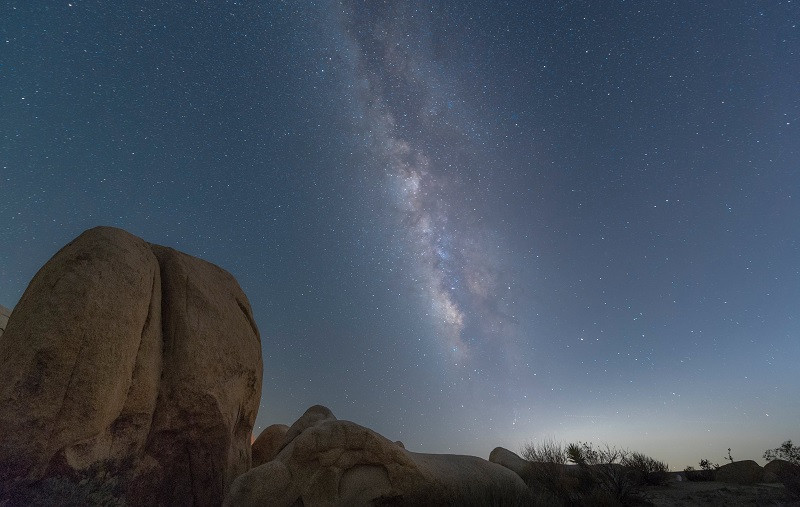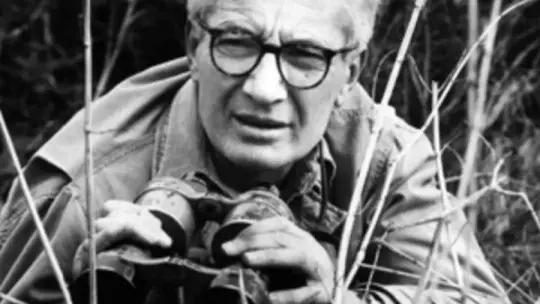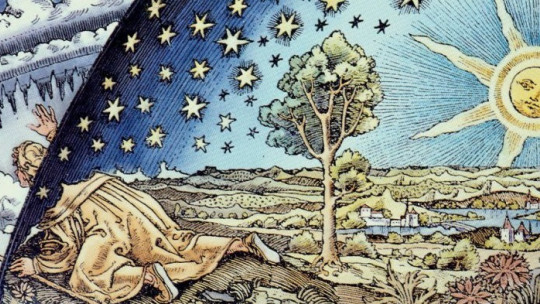
Human beings are curious and we constantly look around us to look for answers to the events that occur or the people with whom we interact.
Furthermore, we try to find meaning in our lives, so we are always questioning things and asking questions that allow us to obtain more information, as well as have a greater explanation of what is happening in our environment or in our lives.
Questions that have no answers
There are a type of questions that, either because science has not found an explanation or because the question does not make sense, have no answer. In this article we have made a list of unanswered questions
Philosophical and scientific questions
There are a series of philosophical and scientific questions that have no answers. They are the following.
1. Will there be life on other planets?
A question that has no answer but that both philosophers and scientists have asked themselves: is there life on other planets?? Some individuals report seeing flying saucers, but there is no evidence that extraterrestrial life has walked on Earth. If there was life on other planets, what kind of life would it be?

2. Is there life after death?
After death, what happens? From a logical point of view, there is no evidence that our souls go to heaven. But, if we have not been there to prove it, it is not an absolute truth either.
3. Does the Universe expand?
Until recently, it was believed that the Universe was infinite; today, the scientific community seems to be clear that it is expanding This is difficult to imagine if we stop to think, and perhaps in the future another explanation of the cosmos will appear.
4. Is the Big Bang theory true?
If the Universe expands, the Big Bang theory would make sense However, there are also scientists who criticize this version.

5. Why is there something instead of nothing?
And of course, how can the Universe have emerged from nothing. How can it be that there is nothing? And… is there something? Where do these physical laws that govern us come from? Nothing in modern physics explains it.
6. How many universes are there?
If it is already difficult to understand our Universe, imagine considering the existence of others. Is it possible that there are more Universes? I would say no, but… what if yes?
7. Are we good or bad by nature?
What is human nature like? Is it good or is it bad? What is clear is that we are adaptive and the environment conditions us. But to what extent do genes determine our personality.
8. Does justice exist?
Life is not fair, we just have to take a look around us Barbaric occurrences are the order of the day, and so is the corruption of those who are supposed to protect us. Also, what is fair to me may not be fair to you.
9. What is the meaning of life?
Existentialist philosophy has long questioned this question. But what is the meaning of life? For those who are lucky enough to be born with a special talent and develop it, surely yes. But there are people who are born in conditions that are too unfavorable to even consider their talents. So, What is the meaning of life if, for example, you are born in times of war?
10. Does God exist?
Does the supreme being exist? It seems difficult to believe, considering that there are many religions that we can find in the world. Furthermore, with life being so cruel, even for the innocent, why doesn’t our lord do anything to prevent it?
11. Where do human beings come from?
Were we evolving from simpler forms of life? Are we the mixture of several species of apes? Were we created by a higher intelligence?
12. What is freedom?
A highly sought after and claimed value, but… do we know exactly what freedom is? Perhaps each person has a different and unique conception, so it is not easy to talk about freedom without bringing up certain subjective evaluations.

13. What is art?
One of the most difficult questions to answer, because it is highly subjective. Not even if we brought together a hundred experts could we achieve unanimity to describe what really is an artistic expression, and what is not.
14. Can we be sure that we are not an experiment?
Or, put another way: what degree of certainty do we have that the reality we know is, precisely, real? It is not unreasonable to think that we live in a fictional reality, like in the Matrix.
15. What is subjective experience?
If reality is composed of matter and energy, what is consciousness?
16. Are we more than the sum of our cells?
The human body gives rise to a living being, but at the same time, cells are also living beings Furthermore, for our body to function, bacteria from the environment must participate.
17. Where does the transition between species occur?
At some point in biological evolution, a set of living beings that are part of one species become another different species due to the passage of time and the pressures of adaptation to the environment. How to define the moment in which this transition takes place?
18. Are our ideas our own?
Each individual has their own flow of thoughts, but at the same time, These ideas refer to concepts delimited and concretized by other people before us and that have been transmitted to us through language.

19. Is it possible to die several times?
If we lose consciousness thinking we are dying, isn’t that the same as really dying?
20. Can we reach the truth through science?
To what extent does scientifically obtained knowledge reflect truth, rather than being temporally valid beliefs?
21. Is it possible to freely use addictive drugs?
These types of drugs are characterized by breaking our will That being so, can it be said that those who use them do so freely?
22. At what point does a new animal species emerge?
This is a scientific question without a definitive answer because the emergence of new species does not occur in a single generation; For it to establish itself, it must find its ecological niche and must achieve a degree of reproductive isolation that separates it from the set of animals from which it has evolved.
23. In what part of the brain is human consciousness located?
It is very complicated to link consciousness to a part of our brain, because it is the result of a large network of neurons interconnected with each other and with other parts of the body.
24. As adults, are we the same as we were in our childhood?
It could be said that our way of feeling and thinking varies so much during the first years of our lives that over time we transform into other people.

25. Does thought give rise to emotions or vice versa?
This is a question that has been addressed by Psychology for decades. It is difficult to know what comes first, especially considering that much of what happens in our heads is unconscious.
26. Is mathematics part of nature?
Mathematics can be understood as a human invention or as a product of what surrounds us.
Pointless questions
Other questions simply have no answers because they are absurd or meaningless.
1. How far do bald people wash their faces?
It can be difficult to know where the boundary between the face and scalp is when there is no hair to differentiate it.
2. Why is it that when a person is right you have to give it to them? If he already has it. In that case it would have to be given to him when he doesn’t have it, right?
A question that makes no sense and, therefore, has no answer either.
3. Why if you blow on a dog’s nose does it get angry and if we take it as a passenger in the car with the window down, does it stick its head into the wind?
I’ll probably stick my head out for the fresh air or to smell what’s outside The answer to this question is unclear.
4. Why is Goofy able to walk on his two feet and Pluto is on all fours? Aren’t they both dogs?
In cartoons, unexplained things often happen.
5. Why did the Flintstones celebrate Christmas if they lived before Christ?
It doesn’t make much sense for the characters in these cartoons to celebrate Christmas.
6. How do I know how many lives my cat has left?
You can’t know or… yes! He only has one life left, which is the only one he has.
7. Do infants enjoy childhood as much as adults enjoy adultery?
It is not possible to answer this question, since it is made by playing with words.
8. Why is there no mouse-flavored cat food?
Well, it’s difficult to answer this question. Has anyone ever thought about it?
9. Why do we have to avoid dangers? But if people don’t even want them as gifts…
A quote that has a certain sense of humor, so there is no need to look for the answer to this question because it does not have one.
10. Where do farm workers go when, tired of their work, they decide to “get away from it all”?
City workers go to the countryside to relax. Surely in the countryside they will not get as stressed as in the city. If they do, they can enjoy the field itself.
11. Why is no one able to realize that Clark Kent is Superman? Can glasses and a curling iron change a person so much?
It’s funny that just by changing his glasses and hairstyle, no one realizes that Clark Kent and Superman are the same person.
12. If a lawyer goes crazy, does he lose his trial?
A lawyer going crazy has nothing to do with losing a trial, so this question is rather ironic.
13. Why do we call the drink a “drink”, even before drinking it?
Language has these things. You don’t have to look in places where there is nothing.
14. Where is the other half of the Middle East?
The Middle East is referred to in its position on the map, not in quantity.
15. Where is the other half of the environment?
Same as the previous question. It has nothing to do with quantity.
16. Why does Tarzan have long hair but not a bit of beard in all his years lost in the jungle?
Although he could be bearded, Tarzan is a fictional character, who appears in a film.
17. Why do we press the buttons on the television remote control so hard when we know that it has run out of batteries?
It is difficult to answer this question. However, the same frustration of not being able to change the channel can lead us to have this reaction.
18. Why is the only thing that is never free at an open bar party?
The open bar means that the drinks are free, not that the bar is unoccupied.
19. If ordinary is synonymous with vulgar, why doesn’t extraordinary mean very vulgar?
There is no reason why it should be that way. It’s part of the language,
20. Why is “separate” written all together and “all together” written separately?
Again, you don’t have to look for the cat’s three feet, because that’s how language is.
21. Why do we have crow’s eyes on our feet and crow’s feet on our eyes?
The location is not the reason for the name. The answer, if there is one, must be the similarity to the parts of the rooster that the shape of these phenomena presents.
22. If water is colorless, why is the part of a towel that has been immersed in water darker in color than the dry part?
What produces a wet effect, does not change the color of the towel.
23. If you were a masochist in life, wouldn’t it be a reward to go to hell and a punishment to go to heaven?
A question that mixes pears with apples.
24. If jail and prison are synonymous, why aren’t jailer and prisoner?
Although both roles are part of the penitentiary system, this question does not make any sense nor does it have to be answered.
25. Why do the moons of the rest of the planets have their own name but ours is only called “Moon”?
A sign that we take for granted what is familiar to us.
26. If Socrates was wise for not knowing anything… Does Socrates know more than Einstein?
It is not clear to what extent the time factor should be taken into account when assessing people’s wisdom.
27. What do the sheep tell before they go to sleep?
Surely they lack references to try to fall asleep.
28. Why do we cover ourselves with the sheets when we are afraid in bed?
It doesn’t seem to be a very reliable defense against attacks.
29. If some stores are called “grocery stores”, where are the “supermarines”?
It is strange to reach that degree of power without first passing through intermediate degrees.
30. Does truth exist?
This is a philosophical question of the first order. What is the truth? Can we perceive it, or is it the subjective process of each of us? Do universal truths exist?
31. Does good exist?
The existence of the idea of good is something that has occupied philosophers since the beginning of this discipline, already in ancient Greece it was a very recurring topic in the debates of the time.
32. What happens to us when we die?
What happens after death is another of the inexplicable topics that human beings have investigated and explored since their beginnings. One of the greatest enigmas in the history of humanity.
33. Does evil exist?
Evil is another of the concepts that has been worked on the most in philosophy throughout the history of humanity. Since many thinkers tried to explain sometimes inexplicable behaviors on the part of other people.
34. Is there a primordial creator?
The idea of a demiurge or a deity who created all things is another of the most recurrent ideas that have been considered since the beginning of time to explain reality.
35. What did the first human being think?
We do not know what the first human beings were like at the dawn of humanity, nor how they thought or what they did on a daily basis.
36. Are we more than matter?
There has been a bitter debate for millennia about whether human beings are only matter or are made up of some other spiritual component, such as the soul.
37. How many “I”s are there?
Recent theories about a multiverse make us wonder about the existence of more than one “I” that can live in another universe with other conditions different from ours.
38. If animals had the ability to speak, would we understand them?
This is a question that involves deep philosophical reasoning. If a lion could speak our language, would we understand his references and ideas about his environment?
39. When will the universe come to an end?
An equally recurring question since the beginning of our civilization. Both religions and science have different answers that surely differ on several points.
40. Does happiness exist?
Happiness is one of the goals of most people in the world, however, its existence is not something that has been proven.
41. What is real?
There are many philosophers and religious people who have reflected on what is real. Likewise, a large number of literary and cinematographic works have approached this debate from various points of view.
42. When will the human race become extinct?
A question similar to that of the end of the world, but which poses the extinction of the race and not the planet. There are many thinkers who have philosophized about this possibility.
43. Can we travel to the past?
Science fiction and science itself have dealt with the topic of time travel on numerous occasions. A possibility that does not yet exist within our reach.
44. Does destiny exist?
The existence or not of destiny, the possibility of being masters of what happens to us is another of the classic themes of philosophy and religion. A mystery that has not yet been answered by either of them.
45. Does reincarnation exist?
Reincarnation is one of the fundamental pillars of many Eastern religions. This is a phenomenon little known in the West but whose existence would bring with it a wide variety of really important philosophical questions.
46. What is love?
Love is one of the most universal themes that exist and the one that has been discussed the most in all the arts throughout millennia. A question for which we still do not have a convincing answer.
47. Do ghosts exist?
The existence of ghosts is another of the topics that has aroused greatest interest throughout humanity. A question that has been addressed both from religion, science and philosophy.
48. Do we think in images or thoughts?
The human brain is one of the least studied organs to date. How do we think? What kind of content is responsible for helping us think?
49. What happens when we throw an unstoppable object against an immovable one?
A question limited to the field of physics that only makes sense to ask in a hypothetical sense.








